An APA citation generator is a tool that helps users to create properly formatted citations for their research papers, essays, and other academic works according to the guidelines set forth by the American Psychological Association (APA). The APA citation style is widely used in the social sciences, such as psychology, sociology, and education, and it provides a standardized format for citing sources to ensure clarity and accuracy in scholarly writing.

The generator typically allows users to input the necessary information from a source, such as the author’s name, publication date, title, and URL, and then automatically generates an APA-style citation for that source. This can save users considerable time and effort in creating citations manually, especially when dealing with multiple sources.
There are numerous APA citation generators available online, both as standalone tools and as part of larger research platforms and writing software. Many of these tools are free to use, while some may require a subscription or payment for access to additional features.
Some citation generators also offer the ability to create citations for a variety of source types, including books, journal articles, websites, and other digital media. They may also provide options for creating in-text citations, reference lists, and annotated bibliographies, all in accordance with APA guidelines.
APA citation generators also provide guidance and examples to help users understand the formatting rules and principles behind APA style. This can be particularly helpful for students and researchers who are new to using APA style and need assistance in properly formatting their citations.
When using an APA citation generator, it is important for users to review the generated citations for accuracy and completeness, as well as to ensure that the information provided for each source is correctly formatted according to APA guidelines. While these tools can be a valuable resource for streamlining the citation process, it is ultimately the responsibility of the user to ensure that their citations meet the standards of academic integrity and accuracy.
APA citation generator is a valuable tool for creating accurate and properly formatted citations according to APA style. By automating the citation process, these tools can help users save time and effort while ensuring that their work meets the high standards of scholarly writing and citation accuracy.
Discover the top 10 APA citation generators
SCRIBBR
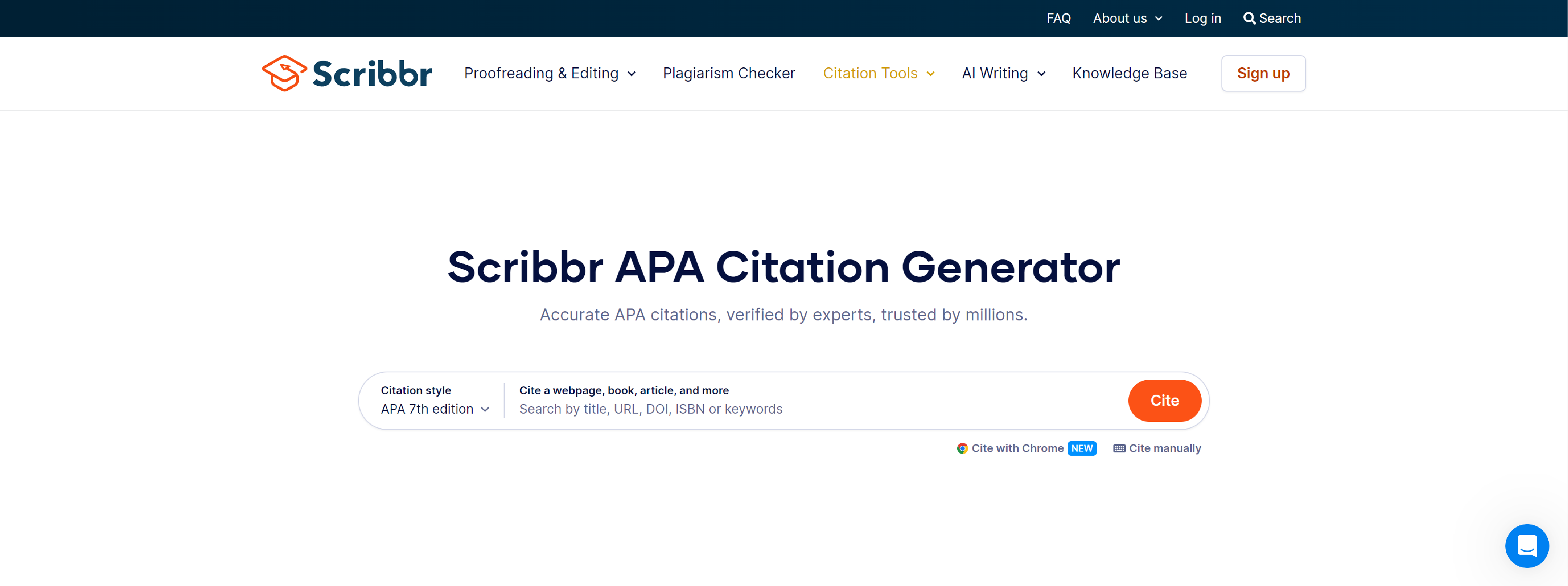
Scribbr’s free APA Citation Generator lets you generate perfect APA Style citations in seconds. Now even easier with a Chrome extension.
- Autocite
- Export to Bib(La)TeX
- Sorting, grouping, and filtering
- Fonts
- Annotations
- Citation guides
- APA 6th & 7th edition
- Export to Word
- Save multiple lists
- Industry-standard technology
- Quick tips
- Secure backup
CITATIONMACHINE
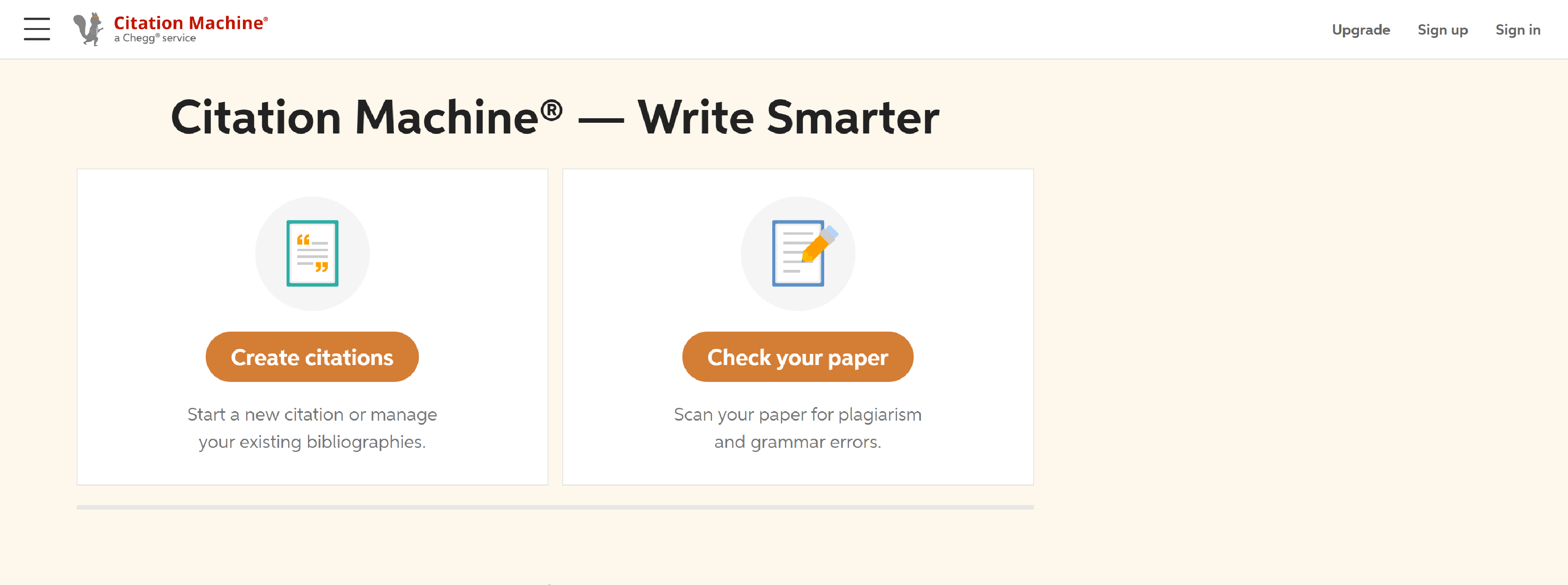
Generate APA citations in seconds. Start citing books, websites, journals, and more with the Citation Machine APA Citation Generator.
- Scan your paper for plagiarism mistakes
- Get help for 7,000+ citation styles including APA 7
- Check for 400+ advanced grammar errors
- Create in-text citations and save them
- Free 3-day trial. Cancel anytime
MYBIB

Generate APA style citations quickly and accurately with our FREE APA citation generator. Enter a website URL, book ISBN, or search with keywords, and we do the rest.
- Save a considerable amount of time
- Ensure that your citations are consistent and formatted correctly
- Be rewarded with a higher grade
QUILLBOT
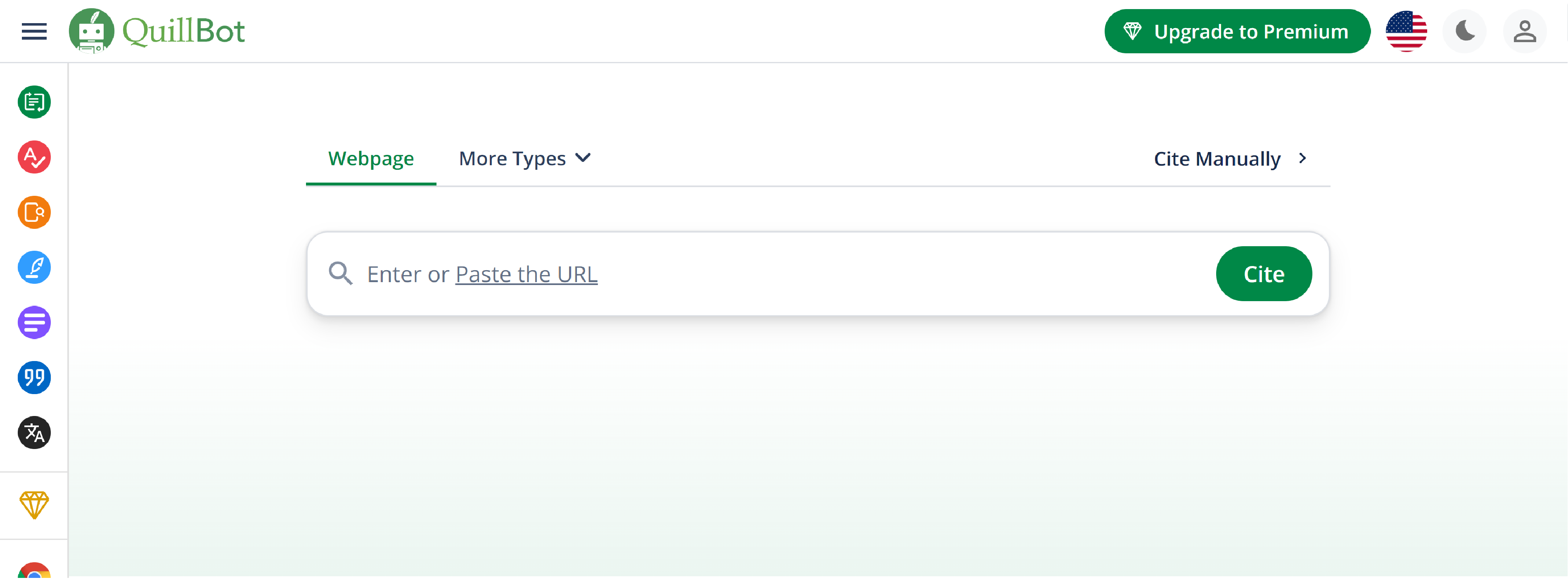
Create perfect APA citations for free with our user-friendly APA format generator. Streamline your referencing process using QuillBot AI powerful APA citation generator tool.
- Autosave While You Work
- Avoid Ads
- Get Alerts for Missing Info
- Keep Up with Current Rules
- Create Both Full and In-Text Citations
- Quickly Find and Review Source Material
GRAMMARLY
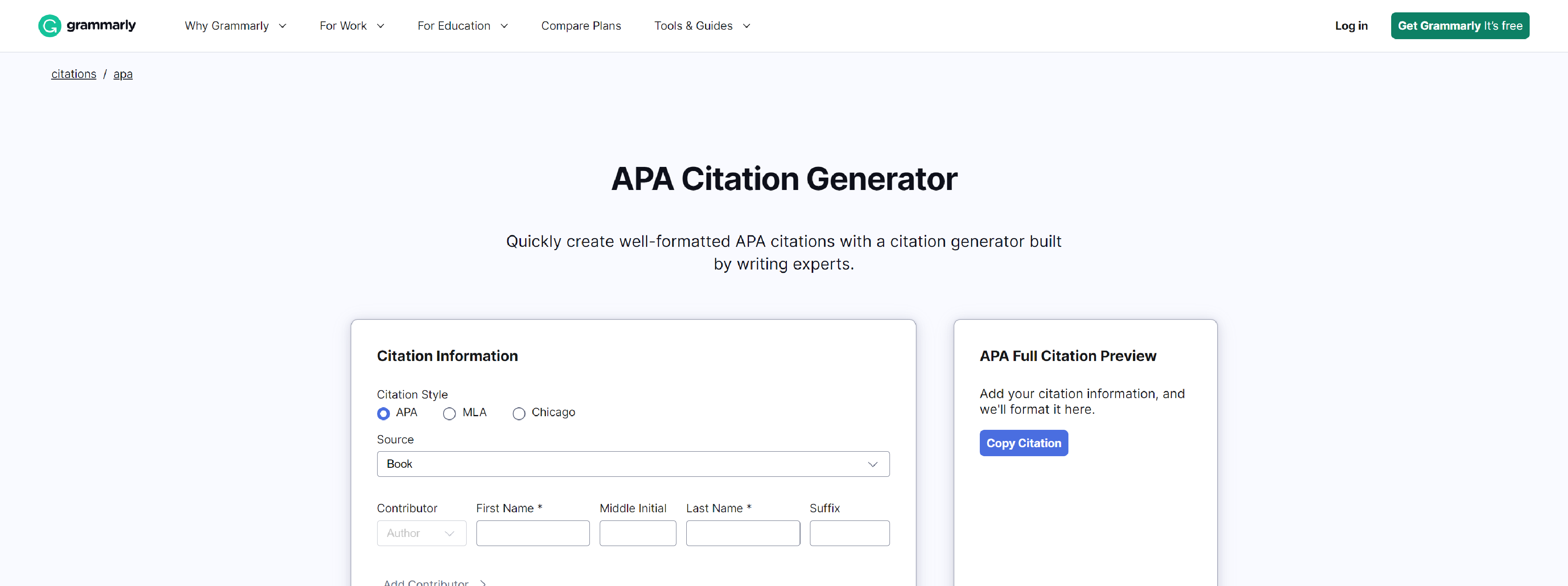
Millions trust Grammarly’s AI writing assistance to communicate with confidence and make writing faster and more delightful.
- Get citations within seconds
- Never lose points over citation formatting
- Keep your writing original
- Proofread with ease
CITEFAST
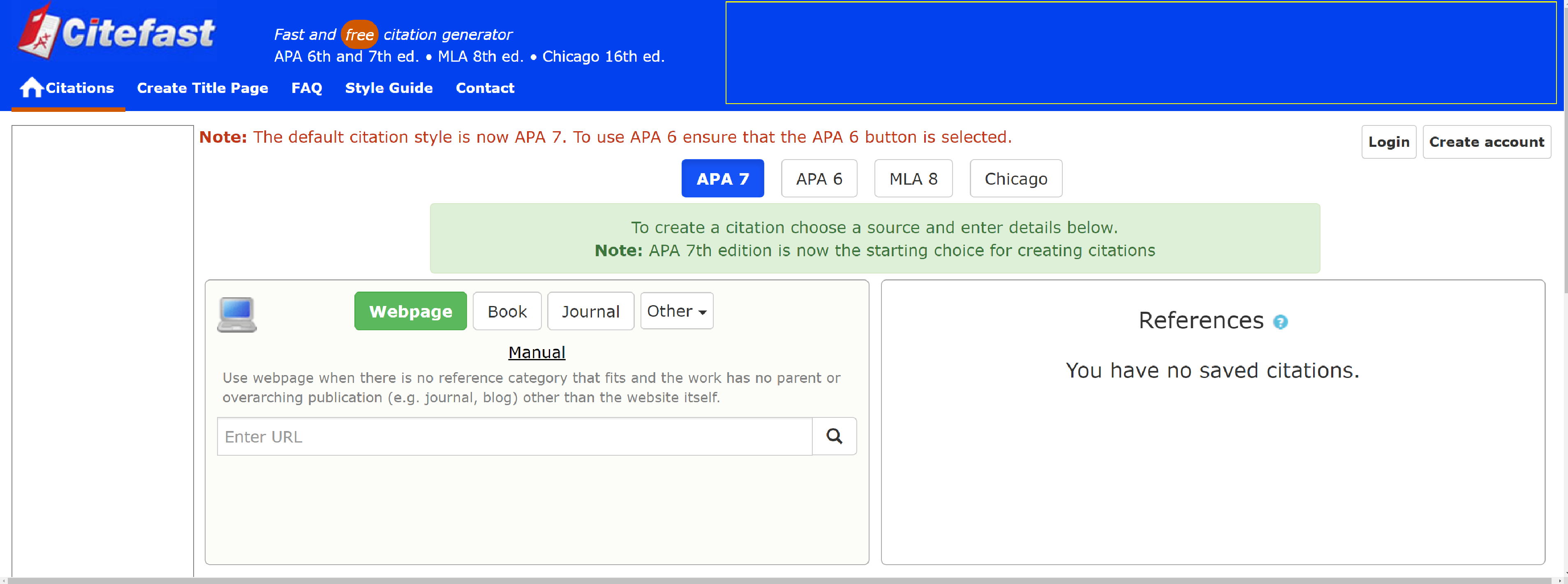
Citefast is a FREE APA, MLA and Chicago citation generator. Generate references, bibliographies, in-text citations and title pages quickly and accurately.
- Notable changes
- General Format Rules
- In-Text Citations
- General Rules – Reference List
- Authors
- Webpage
- Book
- Journal
- Encyclopedia & Dictionary
- Magazine
- Newspaper
- Government Publication
- Social media
- Interview
- Dissertation/Thesis
- Conference
- Blog
- Online Video
- Audio/Podcast
- Web Image
- Lecture/Speech
- Film/DVD
- Television
SCISPACE
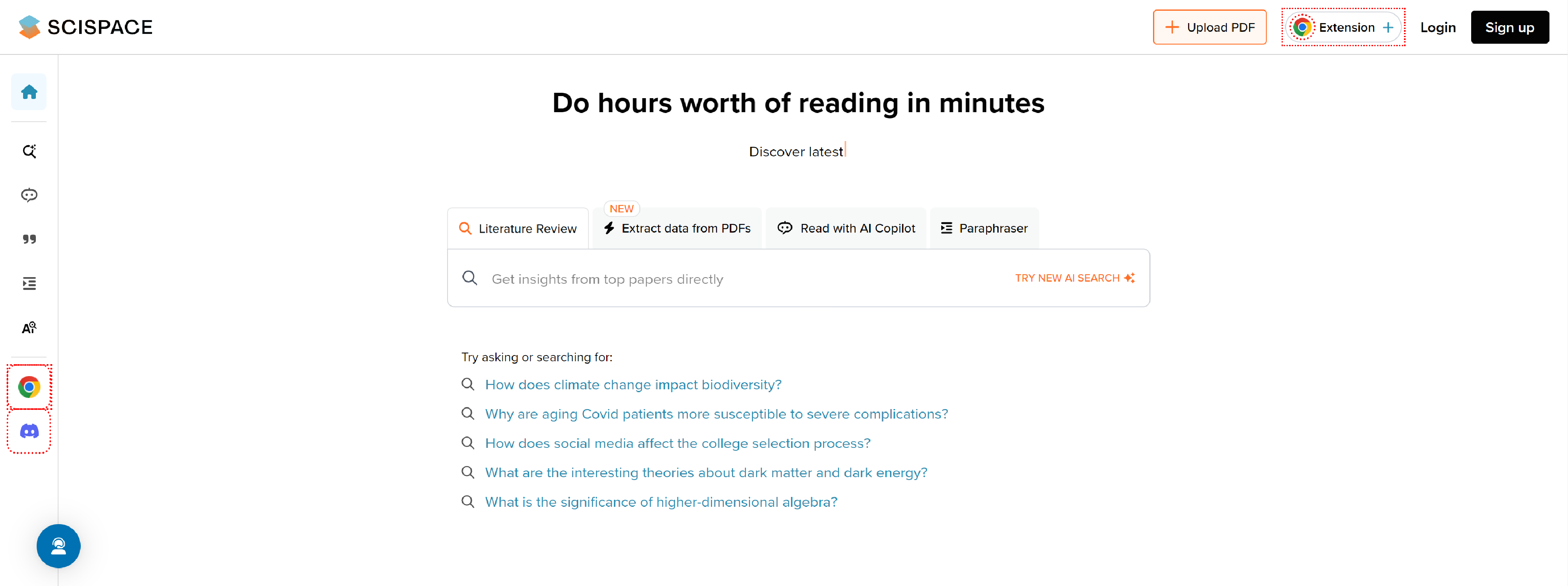
Typeset – Create APA 6 and APA 7 in-text citations and bibliography in no time. When using APA format, we follow the author-date method of in-text citation.
- Proceed with confidence
- Save progress and come back later
- Complete your bibliography for free
- Refer to different types of sources
- Easily export to BibTeX
- Enjoy a clutter-free experience
ZBIB
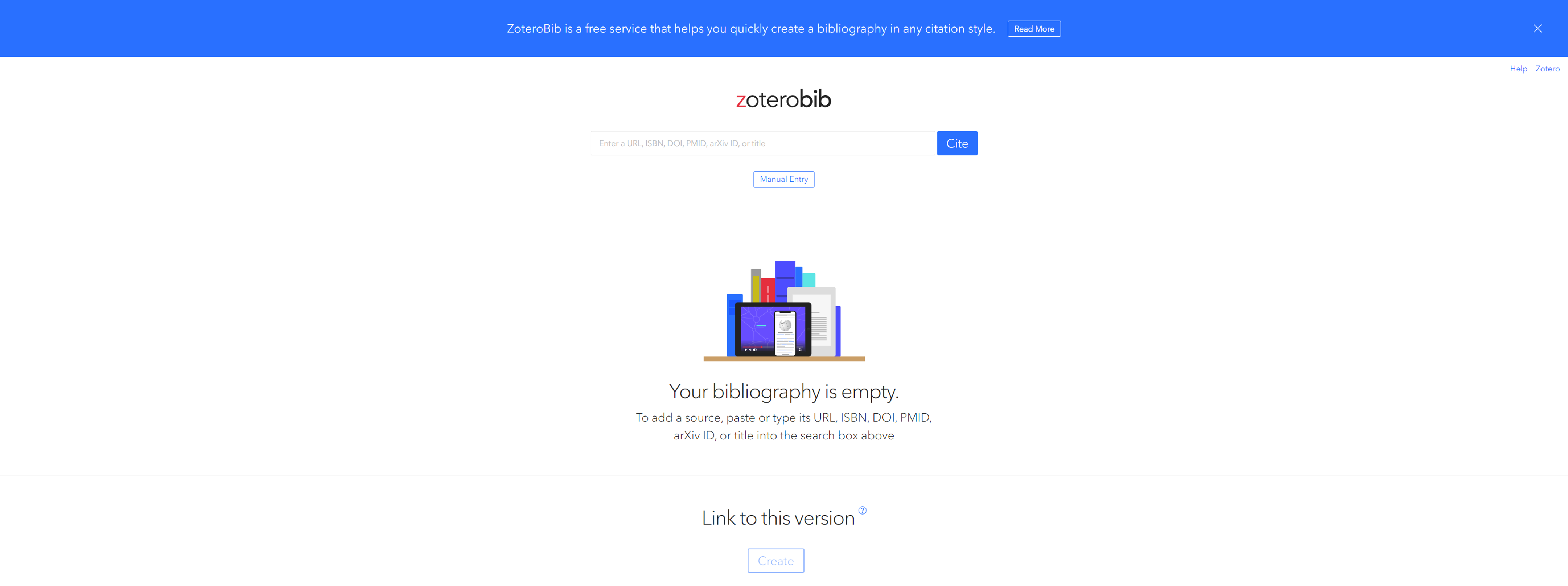
ZoteroBib – free, accurate citation and bibliography maker for APA, Chicago, Harvard, MLA, and 10,000 other styles. No ads, no downloads, no account required.
- Adding a bibliography entry
- Manual entry
- Bibliography title
- Editing an item
- Deleting items
- Style selection
- Copy Citation / Note
- Export
- Autosave
- Link to this version
BIBME
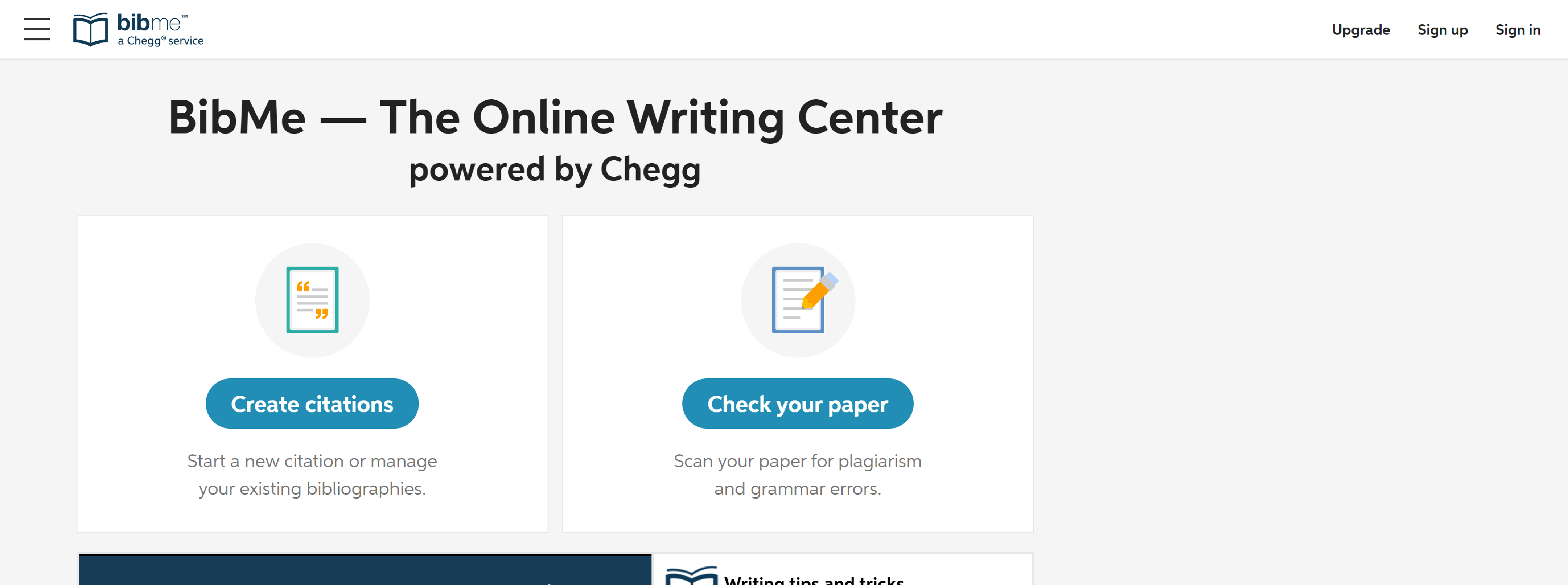
BibMe Free Bibliography & Citation Maker – MLA, APA, Chicago, Harvard.
- Know you’re citing correctly
- Check for unintentional plagiarism
- Strengthen your writing
- Find and fix grammar errors
EDUBIRDIE
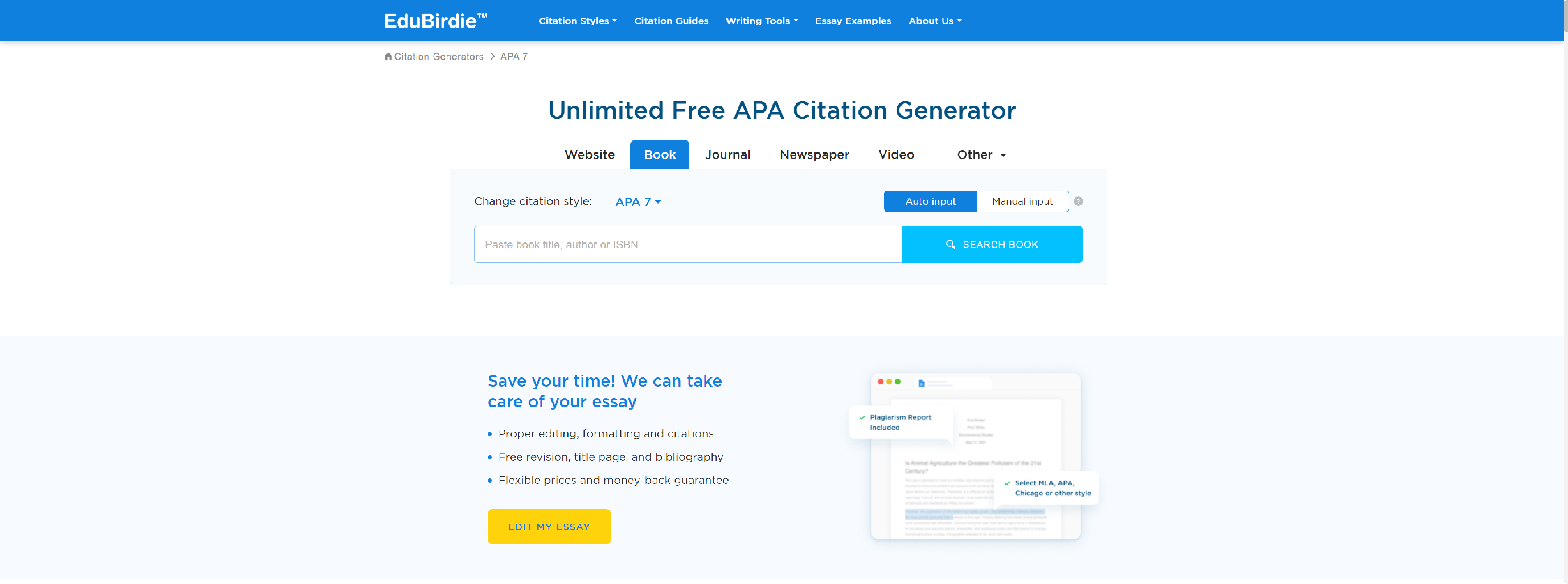
Edubirdie – APA citation generator will help you create bibliographies online!
- Avoid Plagiarism
- Credible Research
- Give Credit
- Professional Look
What is the APA Citation Format?
The APA citation format is a style of writing and citing sources developed by the American Psychological Association. It is commonly used in social sciences such as psychology, sociology, and education. The format includes guidelines for in-text citations, reference lists, and formatting of papers. In APA style, sources are cited within the text using the author-date format (e.g., Smith, 2019) and a reference list is provided at the end of the paper listing all sources cited in alphabetical order. The format also includes specific guidelines for formatting the title page, headings, margins, and other formatting elements of a research paper.
APA: Citations and References
In APA style, citations are used to give credit to the sources used in your research paper. There are two types of citations: in-text citations and reference list citations.
In-text citations:
In-text citations are used within the body of your paper to indicate where you have used information from a particular source. The basic format for an in-text citation includes the author’s last name and the year of publication, separated by a comma and enclosed in parentheses (e.g., Smith, 2019). If you are quoting directly from a source, you should also include the page number (e.g., Krotov, 2019, p. 45).
Reference list citations:
The reference list is a list of all the sources cited in your paper. The basic format for a reference list citation includes the author’s last name, first initial, year of publication, title of the work, and publication information (e.g., publisher, location). The reference list is organized alphabetically by author’s last name.
Some examples of reference list citations:
Book:
Journal article: Author, A. A., Author, B. B., & Author, C. C. (Year of publication). Title of article. Title of Journal, volume number(issue number), page range.
Website: Author, A. A. (Year, Month Day of publication). Title of webpage. Website Name. URL ( CLLAX )
It’s important to note that there are different citation formats for different types of sources, so it’s important to consult the APA manual or an online resource for specific guidelines on how to cite different types of sources.
APA Style Paper Formatting Guidelines (7th Edition)
Here are the basic formatting guidelines for an APA style paper (7th edition):
- Use 12-point Times New Roman font.
- Double-space the entire paper, including the title page, abstract, body, and references.
- Set 1-inch margins on all sides of the page.
- Include a page header (also known as a running head) at the top of every page. The header should include the title of the paper in all capital letters, followed by the page number. The title should be left-justified and the page number should be right-justified.
- On the title page, include the title of the paper, your name, and your institutional affiliation (e.g., university or organization). The title should be centered on the page, and your name and institutional affiliation should be centered below the title.
- Include an abstract on a separate page after the title page. The abstract should be a brief summary of the paper, no more than 250 words.
- Use in-text citations to give credit to sources used in the paper. Each citation should include the author’s last name and the year of publication.
- Include a references page at the end of the paper. The references should be listed alphabetically by the author’s last name.
Note: These are general guidelines for formatting an APA style paper. Always check with your instructor for any specific requirements they may have.
A Brief History of the APA Format
The American Psychological Association (APA) format was first introduced in 1929 as a set of guidelines for writers and researchers to follow when writing papers in the field of psychology. The goal was to establish a standardized format that would make it easier for readers to understand and interpret research findings.
Over time, the APA format has evolved and expanded to include guidelines for writing papers in other fields, such as education, business, and social sciences. The most recent edition of the APA Publication Manual (7th edition) was published in 2019.
One of the key features of the APA format is its emphasis on clear and concise writing. The format requires writers to use plain language and avoid jargon or technical terms that may be difficult for readers to understand. Additionally, the APA format requires writers to cite all sources used in their research, which helps to ensure academic integrity and prevent plagiarism.
Today, the APA format is widely used by students, researchers, and professionals in a variety of fields. It has become one of the most recognized and respected formats for academic writing, and continues to be updated and refined to reflect changes in the field of psychology and other related disciplines.
There are several resources available for APA citation:
1. The official APA website: The American Psychological Association (APA) has a website that provides detailed information on how to cite sources in APA style. You can find information on formatting, in-text citations, reference lists, and more.
2. PurduOWL: The Purdue Online Writing Lab (OWL) is a great resource for APA citation. They provide examples of how to cite various sources in APA style, as well as tips on formatting your paper.